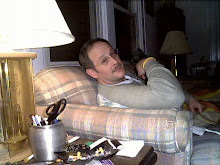I was originally going to post a synopsis of St Thomas Aquinas' proofs for the existence of God as a starting point for my examination of the origin of human rights. This made sense to me, but I decided against it since so many examples were already available. A basic tenet of Catholic theology is that the existence of God can be known through the proper use of reason. One of my favorite proofs is http://www.catholic.com/thisrock/2006/0605uan.asp. Check it out.
Once the existence of a God is established, it's not a far piece of reasoning, at least from a Christian perspective, that if we are sons by adoption through the sacrifice of Jesus Christ, then we are all entitled to an equal portion of the inheritance of His Father who created us. If that Jesus Christ is the King by His Father's will, then we are, by that adoption, nobility. We are imbued with a certain dignity, each and every one of us, that cannot be denied.
It should come as no surprise that this line of reasoning found its way into the foundational documents of the United States. Although the members of the Continental Congress and the Constitutional Convention were a varied lot as far as denominations are concerned, most were practicing Christians of one brand or another. Even so, there are those who contend that Christian thought played no role in the establishment of the new nation; that the founders set out to establish a secular nation uninfluenced by their religious views. The notion that these men were somehow able to act uninformed by their most basic beliefs is patently absurd, and is not borne out by what they wrote.
The foundational document of the United States of America is the Declaration of Independence. True, the Declaration does not have the force of law, but it does outline the philosophical underpinnings of the new republic. The beliefs outlined in the declaration guided the actions of the government prior to the adoption of the Articles of Confederation in 1781. It predates the Constitution by eleven years and the Bill of Rights by thirteen years. The philosophy of government expressed in the Declaration is obviously carried to realization in the Constitution and Bill of Rights, so it is on the Declaration on which we will focus here.
A committee of five was appointed to write the document, but in the main its author was Thomas Jefferson, a deist of no particular religious denomination. In spite of Jefferson's somewhat vague religious beliefs, the Declaration of Independence is rife with Christian, even Catholic, thought (only one member of the Continental Congress was Catholic, Charles Carroll of Maryland, and he was not a member of the committee). While much is made of the influence of John Locke and other contemporary philosophers on Jefferson's writing in the Declaration, it is seldom mentioned that another source for the thought expressed is St. Robert Bellarmine, a Jesuit writer, theologian and cardinal of the 17th century.
The idea that "all men are created equal", that they are endowed by God with "certain inalienable rights", that to protect those rights "governments are instituted among men", that said governments "derive their powers from the consent of the governed", that when "Government becomes destructive of these ends, it is the right of the People to alter or to abolish it..."
Following that train of thought we see that God is the author of all human rights; that governments are responsible to the people upon whom their power rests; as well as to God from whom their authority derives; that governments who usurp or undermine these rights must be opposed.
I don't know what's next. I'm thinking a brief piece connecting the Declaration of Independence, the foundational document of the Republic, to the Constitution and Bill of Rights, the laws that translate that foundation into action. But I never know.
Till then, all the best. Joe
My new blog: The Radical Life
12 years ago

No comments:
Post a Comment